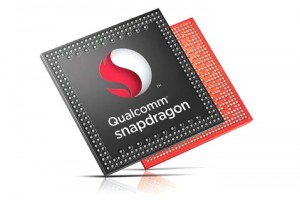 Sony at times has some amazing ideas and products that never catch on – look no further than the Xperia Z4 Tablet to understand what a flagship Android tablet should be and yet sales have been nearly nonexistent. But Sony has also had some bad ideas, like the Sony Tablet P. Then there is the rumor that Sony might develop their own chips to power Xperia devices like smartphones and tablets. The rumor goes as such:
Sony at times has some amazing ideas and products that never catch on – look no further than the Xperia Z4 Tablet to understand what a flagship Android tablet should be and yet sales have been nearly nonexistent. But Sony has also had some bad ideas, like the Sony Tablet P. Then there is the rumor that Sony might develop their own chips to power Xperia devices like smartphones and tablets. The rumor goes as such:
Sony Mobile is considering the development of its own application processors for use in mobile devices, according to a report from DigiTimes. The report says that both Sony Mobile and LG plan to develop in-house chips, following on other manufacturers that already do this such as Apple, Samsung and Huawei.
If true, this could eventually mean a move away from Qualcomm and MediaTek as the two main chipset suppliers for Xperia devices to date. The report goes on to say that Global Unichip, the Taiwanese-based dedicated fabless ASIC provider, has won development orders from “Asia-based handset vendors”.
Genius or terrible idea? Let’s talk after the jump.
At face value, Sony developing their own in-house chipset is wonderful. Most Android device makers like Sony, LG, and HTC till now have relied on chips developed by Qualcomm and MediaTek. This is beneficial for Sony as it allows them to bypass spending money on R&D for new chips and due to the volumes that the two manufacturers are able to produce at, it also means a lower purchase price for Sony. The downside is that their products become hard to differentiate from those of their competitors when it comes to power and that they’re at the mercy of what’s produced by others. Look no further than the Qualcomm Snapdragon 810 chipsets which were prone to heat this year. As a result, the Sony Xperia Z3+ and other manufacturers were plagued by heat issues.
 Sony had little choice when it came time to the development and release of the Z3+. Either the phone would have to ship with last year’s processor or they would have to delay the launch all together till Qualcomm could address the problem. Apple has been faced this challenge twice. Once in the early 2000’s as IBM’s focus withered from the PowerPC architecture which the Mac used at the time and in turn, started to create a performance gap between the Mac & PC. Luckily for Apple, they were ahead of IBM and were able to navigate this by transitioning the Mac to Intel processors secretly. In 2005, Steve Jobs at WWDC would announce the transition and the first Intel Macs launched a year later.
Sony had little choice when it came time to the development and release of the Z3+. Either the phone would have to ship with last year’s processor or they would have to delay the launch all together till Qualcomm could address the problem. Apple has been faced this challenge twice. Once in the early 2000’s as IBM’s focus withered from the PowerPC architecture which the Mac used at the time and in turn, started to create a performance gap between the Mac & PC. Luckily for Apple, they were ahead of IBM and were able to navigate this by transitioning the Mac to Intel processors secretly. In 2005, Steve Jobs at WWDC would announce the transition and the first Intel Macs launched a year later.
Now, ironically, Apple is facing a similar dilemma as the release of more power iMacs, Mac Pros, and even MacBook Pros hinges upon Intel releasing processors in a timely fashion which they’ve been unable to do. Finally in Fall of this year, Intel was able to release their much-delayed Skylake processors which is now being utilized in the 5K iMac. Where Apple has been ahead of the game is in mobile as they design their own processors in-house. As a result, Apple has been able to be years ahead of Android with 64-bit processors that boast far faster processing power. In fact, the new A9X processor which powers the iPad Pro is able to compete with Intel processor in certain areas which is maddening when you consider that Apple has only been building their in-house chips for a few years.
Timothy Arcuri noted that new iPad Pro’s A9X chip offers performance that surpasses the Intel Core M processor used in the new 12-inch MacBook. The CPU also compares favorably to the Core i5 processor used in the baseline Macbook Air.
Another take:
Unlike Android chips that usually achieve speed gains by increasing clock frequency and adding more CPU cores, Apple’s 100 percent custom CPU architecture designs have allowed its A-series chips to outperform Android chipsets with just two CPU cores.
While high multi-core CPU performance is always appreciated, the real-world effects of multiple CPU cores are far less obvious because a vast majority of mobile applications just aren’t optimized for multi-core computing.
So doesn’t this mean that Sony should develop their own chips? Not quite so fast. It’s clear that, though Sony has suffered from not having control over their own chips (though that’s not the reason why Sony Mobile struggles) and that Apple has flourished because of their own chips (though again, that’s not the singular reason why they succeed), it would be foolish to think that such a success can be easily achieved.
Developing a chip is expensive and takes billions of dollars in R&D. On top of that, Sony has some tough competition from Apple, Qualcomm, and Intel which has always toyed with the idea of getting into mobile. What those companies all have that Sony doesn’t (besides cash) is the ability to attract talent. It’s not to say there isn’t a wonderful supply of good engineers working at Sony but that in order for them to compete at those levels, they’ll need to do some high level poaching that will take more than money and I’m not sure working at Sony to spearhead a chip is the sexiest proposition.
All that aside, assuming they can develop on what will surely need to be yearly-released chips, Sony will still have the problem of volume on their hand. That’s because in order for the the chips to be affordable, Sony will need to produce them in high volumes in order to bring prices down. Sony Mobile products are already not known for being cheap and if Sony is unable to get chip prices low, they’ll either have to raise the MSRP on each unit or suffer even lower margins.
Sure, the rumor states that it would be Sony and LG teaming up, but for context, Apple is able to sell more phones per quarter than Sony can in a year. While higher in volume than Sony, I remain skeptical that the combined sales of the two companies, which would still be far less than of Apple, could be enough to bring chip prices low enough to make the transition worthwhile. After all, unless Sony is able to achieve something no other chip maker has thus far which in turn would give them some huge competitive advantage, why would they want to go through the hassle of creating chips themselves if they at best will only be equal and cost more?
For that reason, I simply cannot imagine Sony truly pursuing this. That doesn’t mean they haven’t explored the possibilities. It would be foolish for a company like Sony to not look at all the options they can muster, but that doesn’t mean they’re all worth moving forward with and I doubt this is one of those. Chips aside, one area of component production that Sony has been extremely successful in has been their CMOS image sensors which power competitor devices like the iPhone and Nikon DSLRs. In fact, things are going so well for Sony that they bought out Toshiba’s image sensor business earlier this month.
Discuss:
Do you think Sony Mobile should develop their own in-house chips?
[Via XperiaBlog & DigiTimes]

You must be logged in to post a comment.